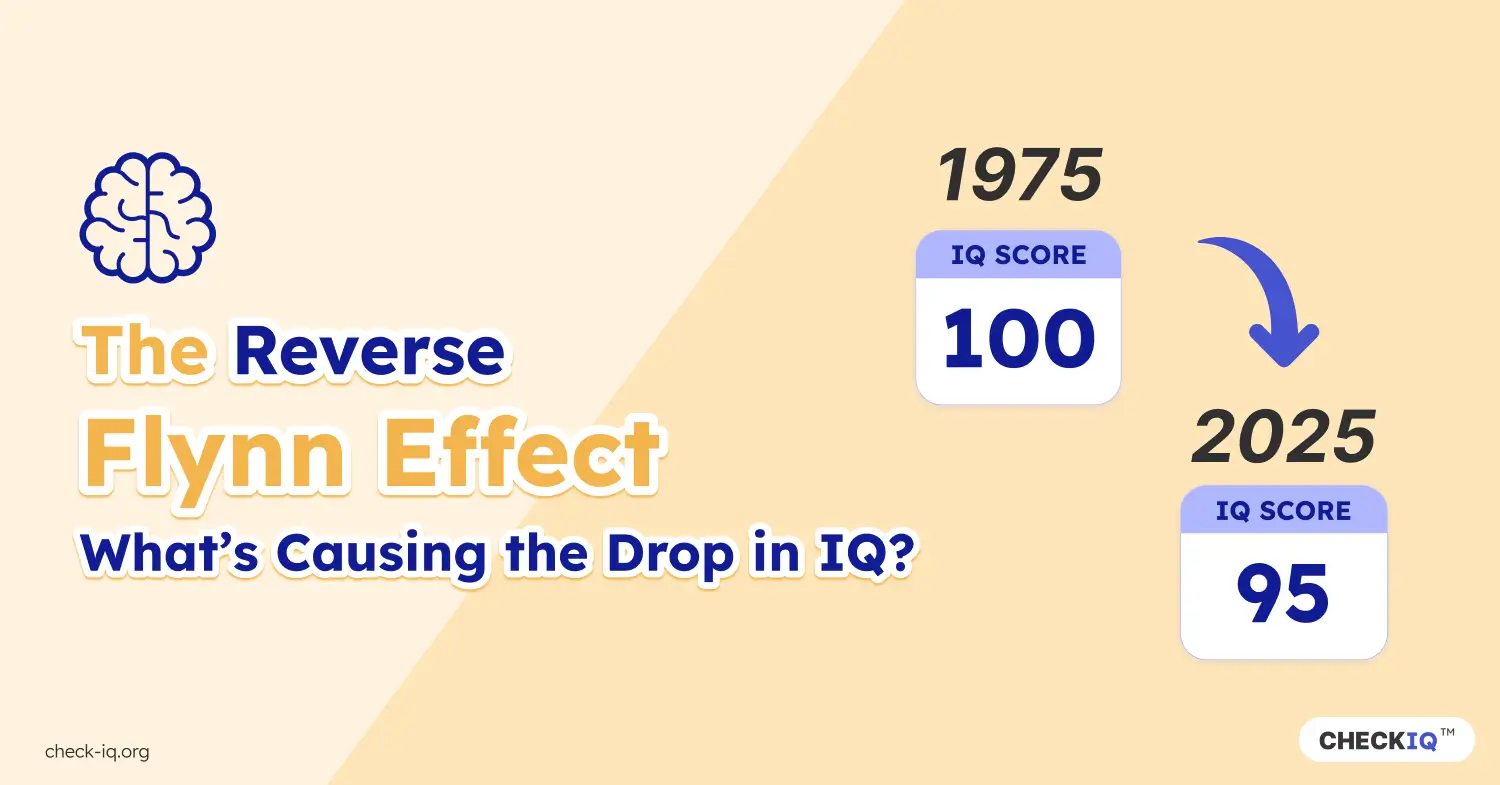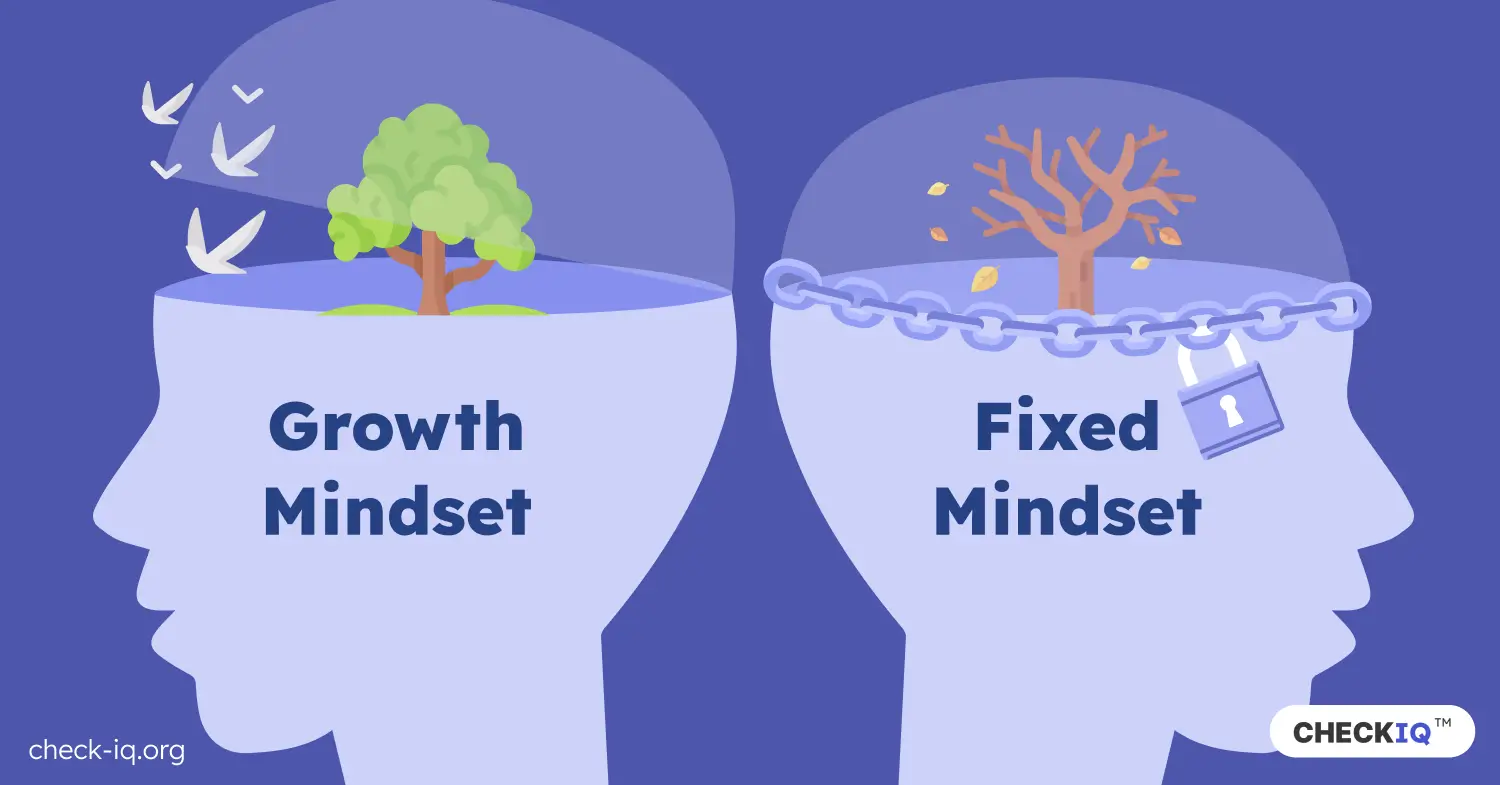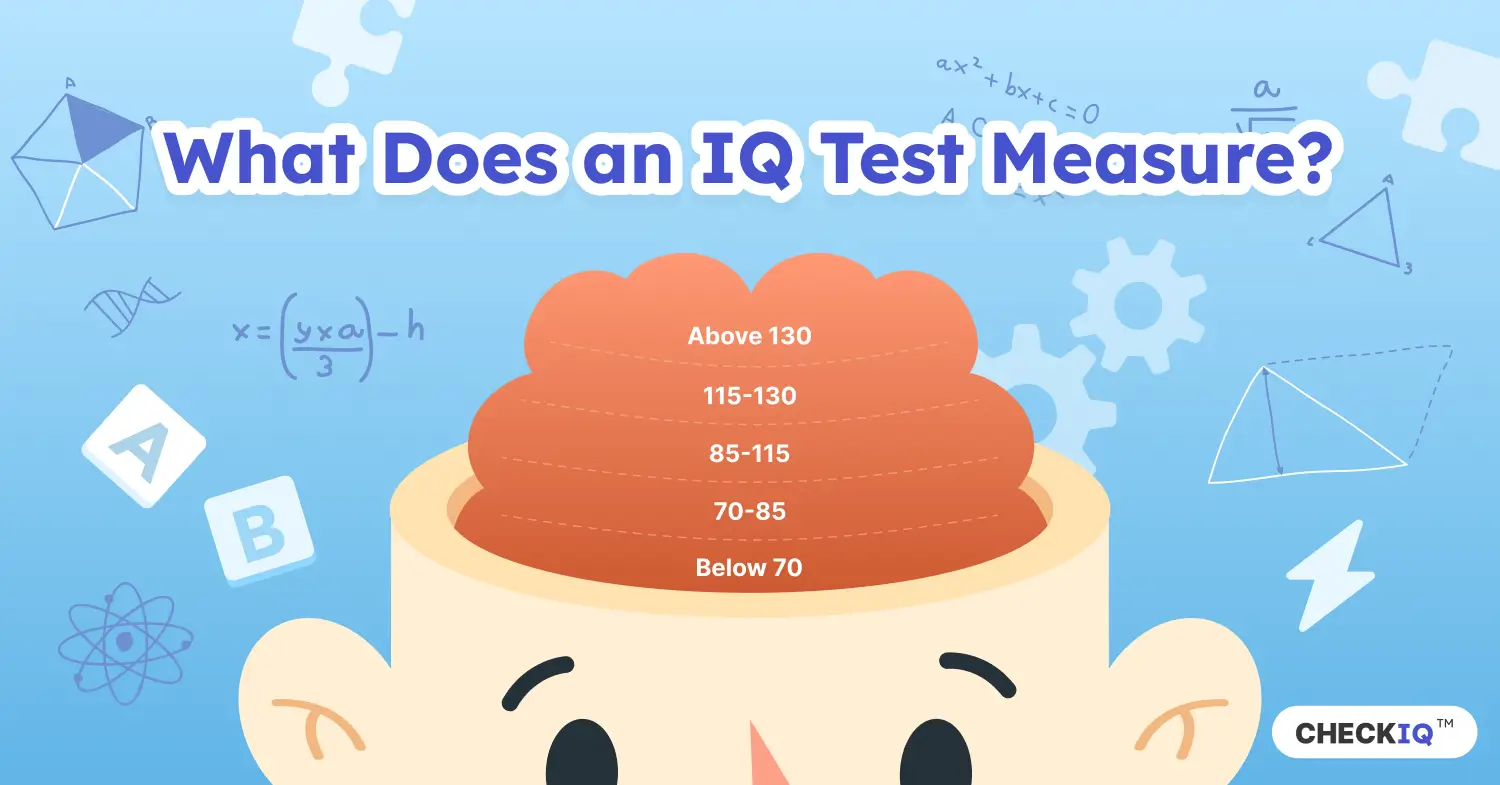What goes up must surely come down – that's the law of gravity. However, could this law also affect things like general IQ scores and other phenomenons? One might argue that the Reverse Flynn Effect should definitely not be happening in the Information Age. Well, you'll get to find out more and see possible reasons that could have led to this.
1. Understanding the Flynn Effect
The leap in IQ scores
You've probably heard about people getting smarter over time. This phenomenon is known as the Flynn effect. It refers to the steady rise in IQ scores that happened over the 20th century.
Studies have consistently shown that the average IQ scores of the population have been rising at a rate of about three IQ points per decade. It is almost as if the collective intellect of society has been on an upward escalator, and everyone's been going along for the ride.
So, if you had taken an intelligence test designed in your grandparents' youth, chances are you would score higher than the average person from that era.
So why would IQ scores be rising? A prominent theory points to environmental factors: heightened nutrition quality, more accessible education, and increasingly complex everyday life that demands – and thus develops – more abstract thinking and better problem-solving skills. You see, the very nature of these IQ tests often emphasizes these skills and as society evolved, so did the factors that effectively prepared individuals for these tests.
A reliable 100% adaptive online IQ Test. Get your IQ score immediately.
Start My IQ Test
Significance of the Flynn Effect
The significance of the Flynn effect cannot be overstated. James Flynn himself emphasized that this trend reflects changes in abstract problem-solving skills rather than concrete day-to-day thinking. This distinction may be crucial in understanding our progression as a society. As complex problems become the norm in our fast-paced world, the ability for broad, analytical thinking is more important than ever.
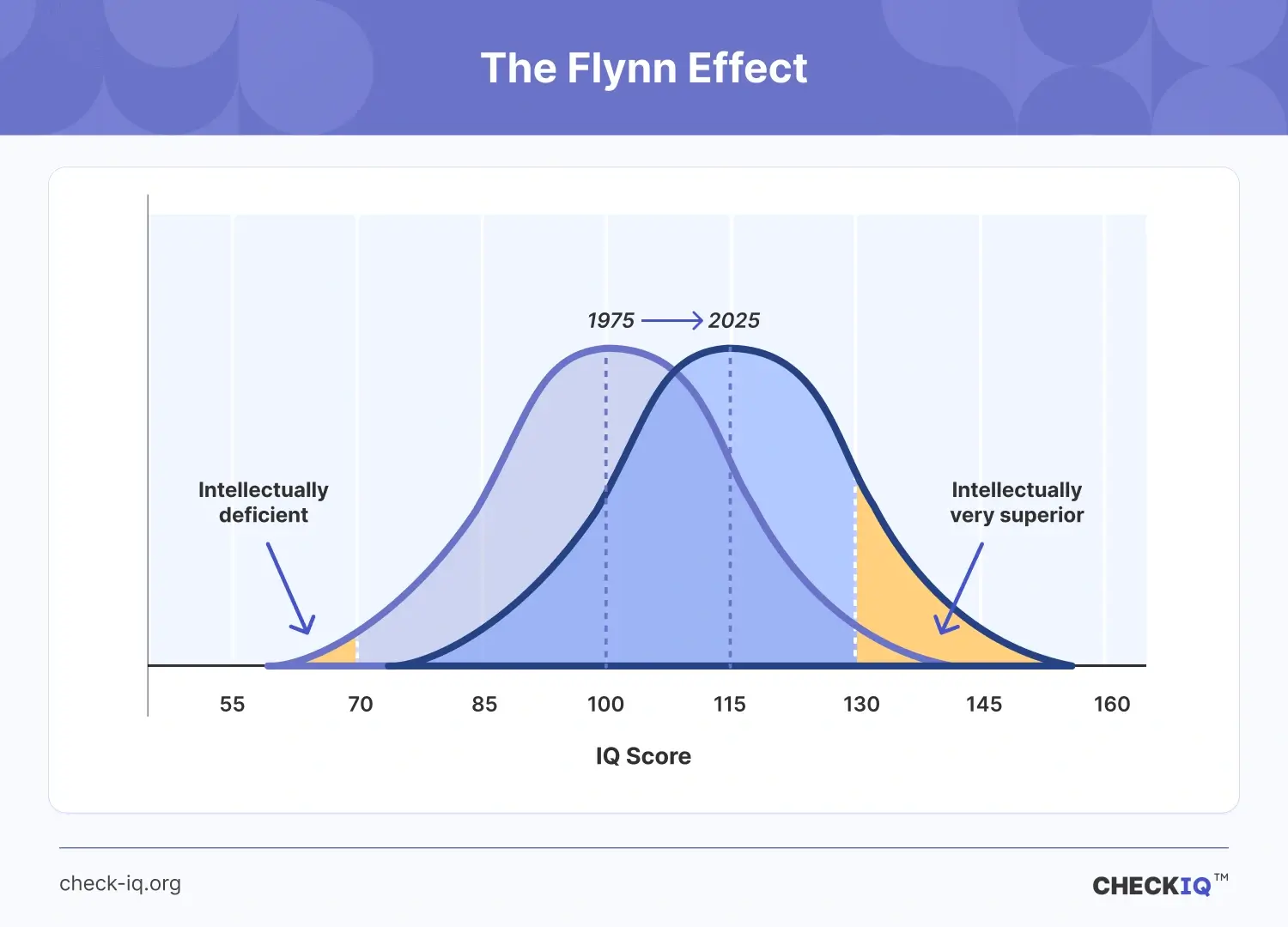
The rise in IQ scores indicative of the Flynn effect has profound implications for how education systems are designed, how workplaces are structured, and even how economies are developed. Below are some areas it has been found to influence:
- In education, this trend has shown the need for teaching methods that focus on thinking and problem-solving skills instead of just memorizing facts. Schools are now required to connect different subjects and use real-world examples. Technology and interactive tools also help students develop these skills and prepare for future challenges.
- In the workplace, higher fluid intelligence means workers can better handle tasks that need creativity and quick thinking. Companies also benefit by creating spaces that encourage creativity and ongoing learning. This would mean more teamwork, training opportunities, and jobs that require strategic thinking instead of routine tasks.
- For economies, the Flynn effect highlights the need to invest in education and training programs that develop thinking skills. This would help people adapt to new challenges and drive progress.
A rise in specific types of intelligence
The type of intelligence that has shown the most gains isn't always the knowledge of facts (also known as “crystallized intelligence”) but rather the ability to think on one's feet and swiftly adapt to new problems (the so-called “fluid intelligence”).
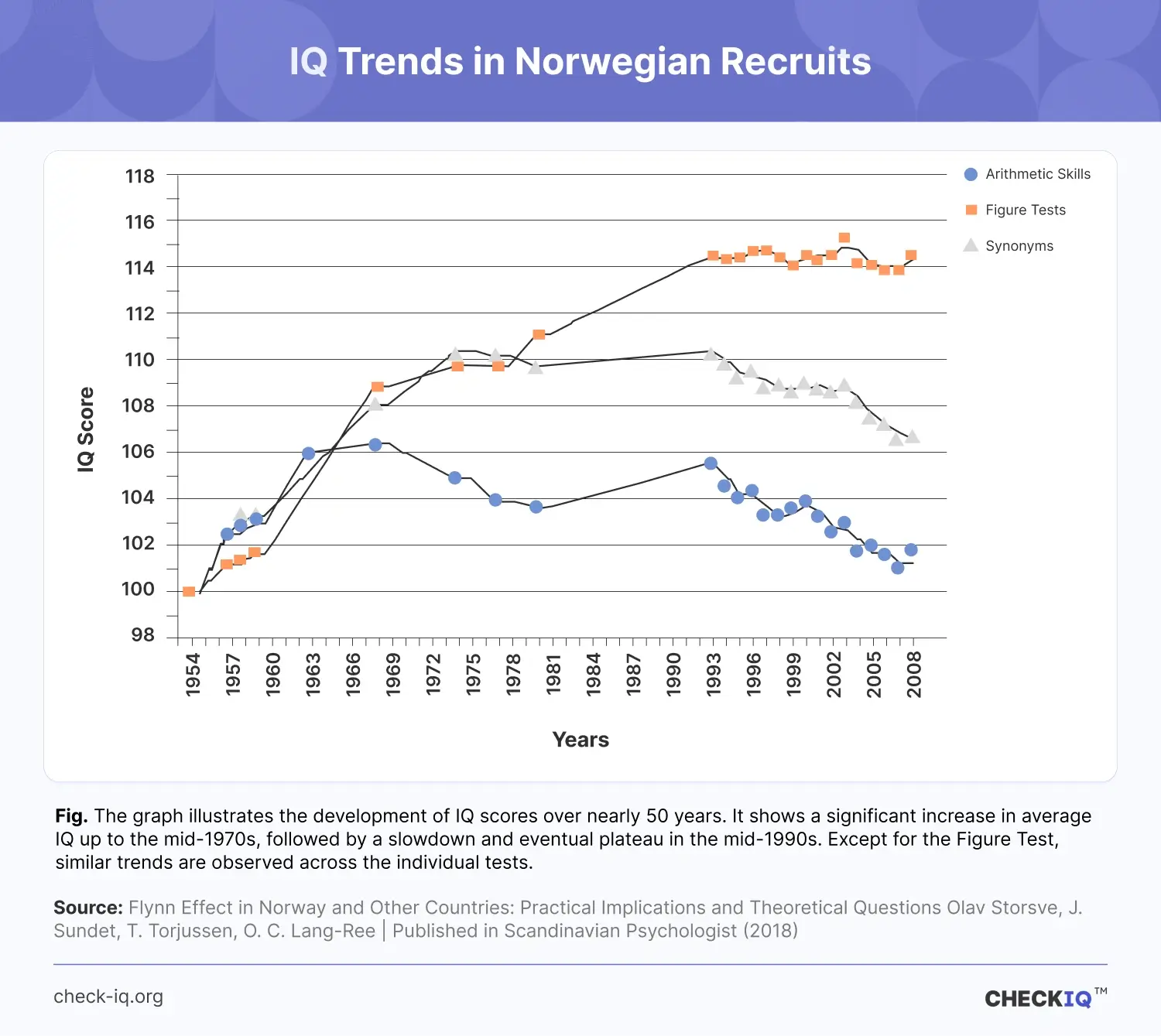
Moreover, as recent research from Northwestern University has shown, while spatial reasoning – a skill crucial in fields like engineering and technology – has seen a rise, other areas such as verbal and mathematical skills have experienced a decline.
2. The Reverse Flynn Effect
What’s the Reverse Flynn Effect?
Imagine a world where the trend of people getting smarter suddenly halts, or even, begins to turn backward. Scary right? Unfortunately, that's essentially what some researchers have started to observe, and it’s a scenario known as the Reverse Flynn Effect.
This expression is used to describe a phenomenon in which the once steady rise in IQ scores over the past century has begun to slow down, stall, or in some instances, reverse. This isn't to say you or the next person has suddenly lost the ability to think or learn. Rather, it hints at an intriguing shift in the collective cognitive abilities across populations.
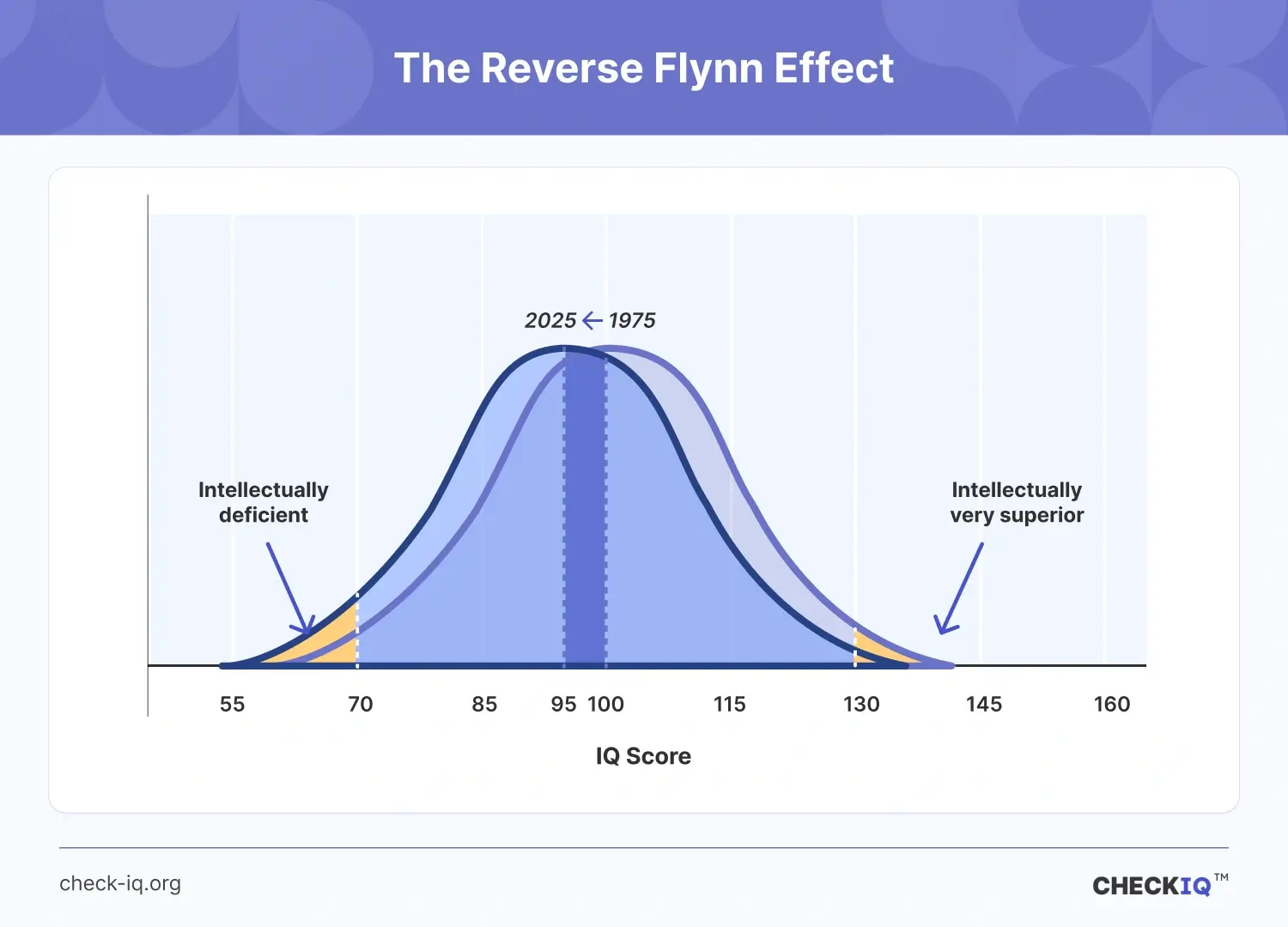
While the reverse Flynn effect is a population-level trend, it can have implications for educational policies and the workplace environments that rely on assumed levels of cognitive skills. But before jumping to conclusions, it's crucial to understand what these changes really mean and just how they might play out in day-to-day life.
The implications of the Reverse Flynn Effect
Now you're aware that the reverse Flynn effect stands for an overall decline in IQ scores, let’s talk about where we've seen this happen.
IQ decline in Norway
The reverse Flynn effect, meaning a drop in IQ scores, has been seen in Norway. Studies found that Norwegians' IQ scores started to fall. This was surprising because Norway usually has a high standard of living and good education.
Global trends
This decline is not just in Norway. Other countries like Denmark, Australia, Britain, the Netherlands, Sweden, etc. have seen the same trend. This has caught the attention of researchers around the world. A few European countries have shown significant drops, causing concern in the U.S. about whether the same could happen there.
Possible causes of the Reverse Flynn Effect
What could be causing this decline? Well, this is quite complex, and there are no clear answers yet. Researchers think it could be due to changes in development, education, and modern lifestyles.
Some studies have also highlighted excessive social media and Internet usage as a possible cause as it has been shown to decrease cognitive functioning especially in adolescents. These possibilities are logical since IQ scores are influenced by many factors, including societal shifts, environment, and the nature of the tests. It only makes sense that changes to those factors could lead to a general IQ decline.
As an additional cause, research by Elizabeth Dworak of Northwestern University suggests the drop in IQ scores reflects broader societal changes, not just issues in education. She found that while some mental skills like visual tasks improved, others like problem-solving and language skills got worse, especially in younger people and those without a college degree. Her research suggests that society might value different skills now compared to the past.
Supporting this, a study by the University of Oslo looked at Norwegian siblings born between 1962 and 1991. It found that the rise and fall in IQ scores were due to external factors, not family or genetics. This means that the environment plays a significant role in IQ scores. Factors such as changes in education quality, media exposure, nutrition, health, and social influences from immigration all contribute to these observed changes in IQ scores.
What next?
The discovery of a possible drop in IQ scores is worrying, but it also gives us a chance to make changes. By understanding how things like media use, lifestyle choices, and education affect our IQ, we can find ways to keep or even raise it.
We can start by promoting healthier habits, such as regular exercise, balanced diets, and enough sleep. Encouraging activities like reading books, learning new things, and thinking critically can also help. Improving how we teach, focusing more on problem-solving and creativity, is important too.
Additionally, we should rethink how we use technology. While it has many benefits, it's essential to balance it with activities that challenge the brain. Encouraging face-to-face social interactions, spending time outdoors, and picking up hobbies that require focus and skill can help balance the effects of digital media.
The Reverse Flynn Effect isn't a predetermined fate. By acknowledging its potential causes, we can work towards reversing the trend and ensuring future generations have the tools they need to thrive.

